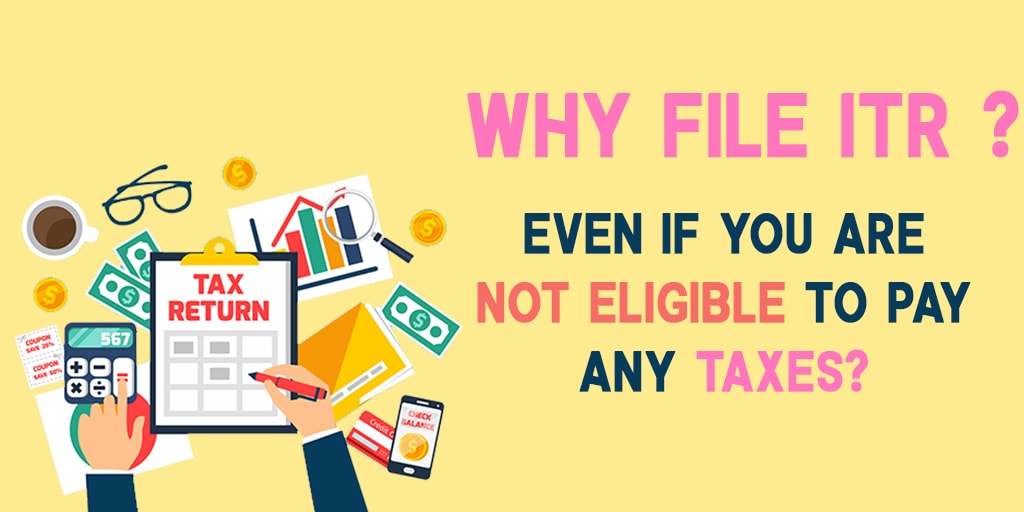
Why file ITR even if you are not eligible to pay any taxes?
June 13, 2019
Index funds: Here’s all you need to know
September 17, 2019When Ramesh received his first salary, he was shocked to find out that the amount credited into his account was much lesser than the gross income he was promised by the company.
At first, he thought it was a mistake, but closely inspecting his salary slip, he realized there were many deductions towards tax and other variables which he hadn’t paid attention to when he had received the offer letter.
Just like Ramesh, looking at our payslips feels like deciphering cryptic codes for many of us. Understanding how much you make and what’s being deducted can get seem overwhelming confusing. This can, in turn, make it harder for you to choose the right investment schemes and save on income tax returns.
While everyone has to pay taxes, the amount to be paid can be reduced by claiming tax exemptions. To get a firm grasp of your payslip as well as the tax deduction scheme in India, let’s begin by going through the various components of your payslip.

What are the basic salary components?
When you get a job offer, the company offers you an annual CTC, which is the amount that a company spends on an employee. It includes:
1. Basic Salary
The basic salary is the amount you receive in-hand (up to 50% of your total CTC) and is 100% taxable.
2. Allowances
The company you work for can provide you with several allowances that cover your living expenses such as HRA (Housing Rent Allowance), conveyance, LTA (Leave Travel Allowance), medical, performance bonuses, and special allowances.
3. Contributions
Contributions add up to the retirement benefits that an employee can receive, which include PF (Provident Fund) and NPS (National Pension Scheme), among others.
4. TDS
Depending on your CTC and tax slab, you’re required to pay taxes. TDS, or Tax Deductible at Source, is the amount that your employer deducts every month on behalf of the Income Tax Department of India.

How does tax deduction work?
Under Section 80(C) of the IT Act, you can claim up to Rs.1.5 lakhs worth of tax exemption by making some sound investments. These include:
1. EPF (Employee Provident Fund)
EPF is a deduction, roughly 12% of your basic income, managed by the government using the EPFO (Employee Provident Fund Organization). Usually, the deduction is matched by an equal amount from the employer. For example, if your monthly PF deduction is Rs1500, then your employer adds another Rs1500 so that the total PF amount is Rs 3000.
Employees can withdraw EPF when they change jobs, however, the amount withdrawn is taxable. To escape tax implications, employees can withdraw from the EPF after 5 years.
2. PPF (Public Provident Fund)
A personal provident fund is just like a savings account that you can open in government-designated banks like the SBI to make investments and earn tax-free returns.
The PPF account is valid for 15 years and can help you claim a tax exemption up to Rs.1.5 lakhs. Currently, the interest rate is 8.7% and the lock-in period is 5 years.
3. NPS (National Pension Scheme)
The NPS is a retirement fund managed by the Government of India and works just like mutual funds. You cannot withdraw from the NPS before you are 60, and even then there are certain terms and conditions to be followed.
4. Five Year FDs
FDs (Fixed Deposits) with a lock-in period of 5 years is another excellent investment option since they offer slightly higher interest rates and can provide you with a tax exemption of up to Rs.1.5 lakhs. The interest on maturity, however, is completely taxable.
5. ELSS
ELSS (Equity Linked Savings Schemes) are mutual funds with a lock-in period of 3 years and deliver superior returns to FDs — 14-16% in the long run. Since they invest in stocks and equities, the returns are subject to market risks.
Under section 80(C), you can claim tax benefit up to Rs 46,800 by investing up to Rs 1.5 lakhs annually in ELSS.
Final words
Investments are essential for guaranteeing a secure future, which is why it’s important to understand how much you make and how much can be saved and/or invested. Go through your salary slip to figure out your earnings, allowances, and plan your investments accordingly so that you get the most out of tax deductions.
Still, have any queries about payslips or do you want to know how you can make the most out of the tax deduction schemes in India? Share your queries or views in the comments!
Do share your views, experiences and ask queries through comments.
Click on the link to whats app and get more details


